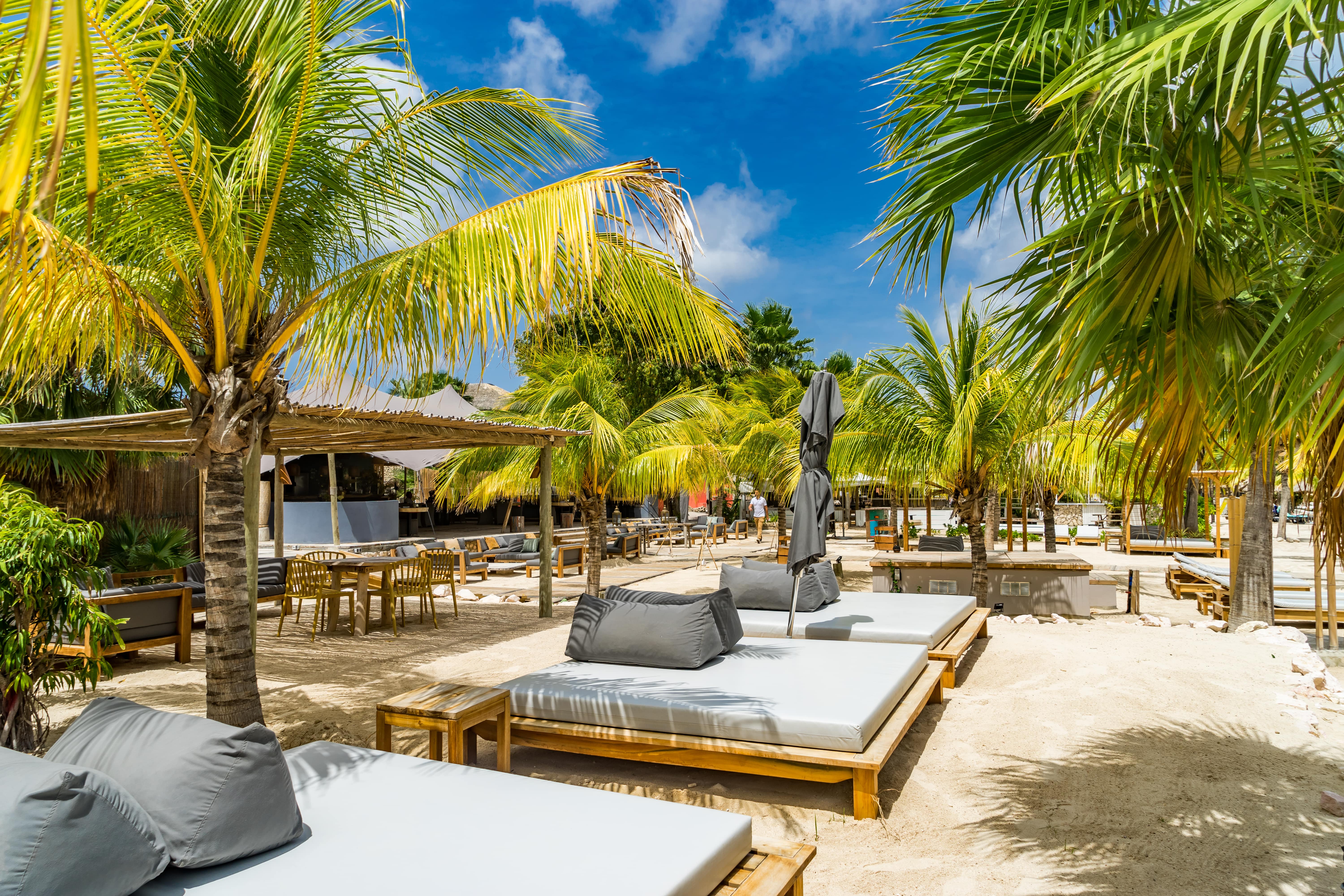Everything You Should Know About Personal Accident Insurance (PAI)
September 12th 2024
If you plan to rent a car for your next trip, you’ve probably heard about various rental insurance options. One of them is Personal Accident Insurance (PAI). So, what exactly is PAI Personal Accident Insurance? It's an extra layer of protection that covers you, the driver, in case of a serious accident.
While standard car rental insurance typically covers the vehicle and passengers, PAI focuses on the driver, ensuring you’re not left vulnerable during a rental period. In this guide, I’ll walk you through everything you need to know about PAI, from its benefits to when it’s useful.
This could be worth considering if you want peace of mind while driving a rental car abroad.
Why is PAI Personal Accident Insurance Important?
When driving a rental car, the risks don’t change just because you’re in a different country. Accidents can happen anywhere, and while your rental car insurance may cover damages to the vehicle and sometimes the passengers, it often leaves out the driver. Without PAI, if you get hurt in an accident, you might find yourself covering costly medical expenses on your own.
Benefits of Personal Accident Insurance
Medical Coverage for the Driver: If an accident happens, PAI can help cover medical expenses for the main driver up to €500. Any hospital visits, treatments, or therapies will be partly covered.
Ambulance Fees: In case of a serious injury, PAI will also cover ambulance fees up to €250. That’s one less thing to worry about during an emergency.
Disability Compensation: If a tragic accident leaves the driver with a permanent disability, PAI provides up to €50,000 to support the driver’s long-term recovery or adjustment.
I remember reading about how expensive medical costs can get, especially when traveling. So having a safety net like PAI makes a lot of sense to me. You get this extra protection for a small daily fee (as low as €1.50 a day), which can make all the difference if something unexpected happens.
Who is Covered Under Personal Accident Insurance?
One important thing to know is that PAI Personal Accident Insurance only covers the main driver and any additional drivers listed in the rental agreement. It won’t cover passengers unless they’re also drivers of the vehicle. This is crucial because, without PAI, the driver could be left paying hefty bills if they’re injured.
Common Situations When PAI Comes into Play
Accident during the rental period: Imagine driving down a scenic route in winter, enjoying the views, when suddenly you get into an accident. With PAI, your injuries, ambulance fees, and potential disabilities are covered.
Multiple drivers: If you’ve added extra drivers to the rental agreement, they’ll also be protected under PAI.
It’s like adding a seatbelt for your peace of mind. While the passengers are often protected under standard rental agreements, PAI ensures the driver isn’t forgotten.
What Does Personal Accident Insurance Not Cover?
While PAI Personal Accident Insurance sounds like a safety net, it’s essential to understand what it doesn’t cover. The last thing you want is to be caught off guard, assuming you’re protected when you're not. Here are a few situations where PAI won’t provide coverage:
Intentional injuries: If someone purposely causes harm to themselves, PAI won’t pay for those rental car damages. For instance, self-inflicted injuries or suicide attempts are not covered.
Accidents involving illegal activities: If the accident happens while the driver is involved in illegal street racing or under the influence of alcohol or drugs, the insurance will not apply.
War-related incidents: PAI doesn’t cover accidents caused by war or war-related events.
Pregnancy complications: Any injury related to pregnancy or childbirth won’t be covered under PAI.
For example, you’re driving and, unfortunately, get into an accident after a night out and have a drink or two. If you’re found to be over the legal alcohol limit, PAI won’t apply. This is a good reminder to always drive responsibly, no matter where you are.
How is PAI Personal Accident Insurance Calculated?
Understanding how PAI Personal Accident Insurance is calculated can help you decide whether it’s worth adding to your rental agreement. PAI isn’t based on how often or far you drive but on specific factors influencing your overall risk.
The cost of PAI is typically around €1.50 per day, depending on the rental company. Here’s what it covers:
- Medical expenses: Up to €500
- Ambulance transfer: Up to €250
- Long-term disability compensation: Up to €50,000
The calculation considers various factors, including the driver's age, resting heart rate, and overall risk factors. This ensures that the premium is affordable while still offering substantial protection. I’ve found that having such an insurance option makes me feel more secure while driving in a new place, especially if I’m unfamiliar with local roads and driving rules.
Factors Influence Personal Accident Insurance (PAI) Coverage
Several factors influence Personal Accident Insurance (PAI) coverage, determining how much protection you get in case of an accident. Here are some key factors:
Age and Health: Your age and health can affect the premium and coverage. For example, younger individuals might get lower premiums, while older people could pay more due to higher risk.
Type of Coverage: Different policies offer varying levels of coverage. Some may cover only medical expenses, while others may include benefits for permanent disabilities or even accidental death. For example, a standard PAI might cover medical expenses up to $500, while more comprehensive plans may offer higher limits.
Driver and Passengers: Some PAI plans cover both the driver and passengers. However, cheaper plans may only cover the driver. For example, a policy could provide $50,000 in compensation for serious injuries to the driver but nothing for passengers.
Rental Duration: The length of your car rental can influence the total cost of PAI. For example, a daily fee of $1.50 for PAI may not seem much for a short trip, but it adds up for longer car rentals.
Exclusions: Certain exclusions, like accidents caused by illegal activities or driving under the influence, may limit PAI coverage. Understanding these exceptions helps prevent surprises.
When Should You Consider Personal Accident Insurance?
Now that you understand what PAI Personal Accident Insurance is, what it covers, and what not, you might wonder when it’s necessary to get it. Based on my experiences and research, here are some tips for when to seriously consider adding PAI to your car rental package:
If You're Driving in a Foreign Country
Driving in a foreign country can be unpredictable, and the roads may not be as familiar or well-maintained as you’re used to. If you’re renting a car while exploring a new country, it’s better to be safe than sorry. PAI provides extra convenience, ensuring you’ll be covered no matter what happens.
If You're Driving Long Distances
The longer the distance you drive, the higher the risk of accidents, simply because you’re on the road more. Whether you’re road-tripping across the stunning landscapes of Europe or navigating through bustling city streets, the added protection of PAI is an intelligent move.
If You Value Financial Security
Accidents can be costly, and the last thing you want while travelling is to drain your savings on unexpected medical bills. With PAI covering medical expenses, ambulance transfers, and more, you won’t have to worry about financial stress on top of dealing with the accident.
Ask More About PAI Personal Accident Insurance
Before I wrap things up, I want to answer a few common questions tourists often ask about PAI (Personal Accident Insurance). Hopefully, these will help you decide when renting a car.
Is PAI the same as regular car rental insurance?
No, it’s not. While regular car insurance covers the vehicle and sometimes passengers, PAI is specifically for the driver in case of an accident.
Can I skip PAI if I already have travel insurance?
That depends. While some travel insurance policies offer accident coverage, they might not include the specific benefits that PAI offers, such as ambulance fees or disability compensation. Always check with your provider.
Does PAI Personal Accident Insurance cover passengers?
Yes, PAI covers both the driver and passengers in the rental vehicle. However, it’s important to note that while the driver is the primary beneficiary, passengers may also receive compensation for medical expenses incurred due to an accident. In most cases, the PAI covers up to a set limit, such as $500 in medical costs for each passenger. This additional protection ensures that all vehicle occupants are safeguarded in case of an accident, offering broader coverage compared to standard policies.
Is PAI mandatory when renting a car abroad?
PAI is not mandatory but is highly recommended for added protection, especially when driving in unfamiliar locations. While rental companies often offer basic insurance, it may not cover medical costs in the event of an accident. Opting for PAI provides coverage for medical expenses, which can be essential, especially in countries with high healthcare costs. For example, medical care in the U.S. can be expensive, with hospital visits averaging $2,500 without insurance. PAI ensures you're financially protected.
How much does PAI Personal Accident Insurance cost?
The cost of PAI typically ranges from $1 to $10 per day, depending on the rental company and location. For example, some rental companies offer PAI for as low as $1.50 per day, which provides coverage for medical expenses up to $500 and compensation for severe injuries or death up to $50,000. Given the low daily cost, PAI is a small investment for significant financial protection, making it a wise choice for travelers looking for peace of mind while driving abroad.
Are there any exclusions in PAI coverage?
Yes, PAI does have exclusions. It will not cover accidents that occur due to illegal activities such as street racing, driving under the influence of alcohol or drugs, or intentionally self-inflicted injuries. Additionally, it doesn't cover complications from pregnancy or eyewear damage unless caused by a traffic collision. In cases where the driver breaches the rental agreement or fails to return the vehicle on time, the insurance may also become void. It's important to understand these exclusions before purchasing.
Does PAI cover medical evacuation?
Yes, in some cases, PAI may cover medical evacuation, such as ambulance transportation from the accident scene to the hospital. The coverage often extends to a certain amount, such as $250 for ambulance services. While not all PAI policies include medical evacuation, it's a valuable feature in countries where medical facilities may be far from the accident site. Always check the specific details of your PAI policy to understand what forms of transportation and medical evacuation are covered.
When should I consider getting PAI Personal Accident Insurance?
You should consider getting PAI when driving in foreign countries, especially in areas where healthcare costs are high, or emergency medical services may be difficult to access. PAI ensures you're covered for any unforeseen medical expenses arising from accidents, for example, in countries like the U.S., where an emergency room visit can cost up to $2,000, having PAI can prevent you from facing unexpected and expensive medical bills, making it a valuable addition to your insurance.
Can I rely on my health insurance instead of PAI?
While your health insurance may offer some coverage abroad, it often has limitations, especially regarding accidents in rental cars. Many health insurance plans do not cover emergency medical services outside your home country, or they may require you to pay out of pocket and file a claim later. PAI offers immediate protection, specifically for accidents in rental cars, with coverage for medical expenses, ambulance fees, and death benefits. This ensures a smoother process in case of an accident.
Is PAI Personal Accident Insurance worth it?
PAI is worth it for peace of mind and financial protection, especially when traveling abroad. For just a few dollars per day, you get coverage for medical expenses, ambulance fees, and compensation for severe injuries or death. Considering that medical costs in some countries can reach thousands of dollars, PAI helps avoid unexpected expenses. For example, a hospital stay in Europe can cost around $800 per day, and having PAI can cover these unforeseen expenses, making it a valuable addition to your rental car package.
Final Thoughts on PAI Personal Accident Insurance
To sum up, what is PAI Personal Accident Insurance? It’s a valuable insurance option that provides coverage in a severe accident. It’s significant for tourists renting cars in unfamiliar countries, offering peace of mind for a small daily fee. With medical coverage, ambulance fees, and long-term disability compensation, PAI protects the driver when standard car rental insurance falls short.
As someone who travels frequently, I find it reassuring to have this extra protection, especially when driving long distances or in new places. So, the next time you rent a car, consider adding PAI Personal Accident Insurance for a worry-free journey.
Ready to Rent a Car?
If you’re planning a trip and want flexibility, renting a car is the best option to avail. For that added layer of security, remember to include PAI in your rental package.
Finalrentals offers a seamless car rental experience with options to include PAI, so you can focus on enjoying your trip without the stress of “what if.”
































































